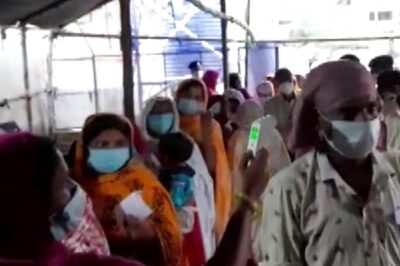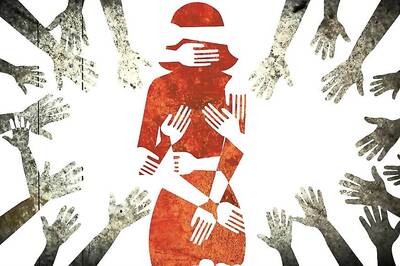
views
In the past, development projects did not have to suffer for scarcity of land or for resistance of evictees from project areas. Thanks to the draconian British law known as the Land Acquisition Act of 1894 which is still in force, governments enjoy the power to evict people from project areas by giving them compensation as they consider fair. The victims were required to vacate on or before the date stipulated by the government, most often before the compensation amounts had reached their hands. No one bothered about their life after eviction.After the earlier Narmada Sarovar Dam, and the recent Nandigram and Singur in West Bengal and Moolampilly in Kerala, it is the turn of the Ganga Express Highway in UP now. The evictees, mostly illiterate villagers or tribals, become landless, houseless, jobless, penniless and friendless, their entire neighbourhood and social surroundings having been uprooted and scattered.Most of them would be helpless in buying a new area, building a new house, acquiring a new job or skill, even when there is money in their hands.Governments take months and years to give them compensation. And when the money eventually comes into their hands, there could be social problems like drinking and other kinds of dissipation. Thus the state would be spawning a new generation of vagabonds and social sickness.The central government brought an amendment bill to the Parliament in 2007 with a view to mitigating the hardships caused to the evictees and to bring to them not only financial justice but social justice as well. After the recent Ganga Expressway agitation in UP in which high profile politicians had participated, the government is showing a sense of urgency to get the bill passed.The amendments seek to ameliorate the plight of future evictees, but without ensuring full justice to the victims even after that. For instance, a new Section (number: 3A) says that ‘whenever the government intends to acquire land for public purpose involving physical displacement of (I ) four hundred or more families en masse in plain area or (ii) two hundred or more families en masse in tribal or hilly areas …. a social impact assessment study shall be carried out in the affected area for the purpose of social impact appraisal, and provide for their resettlement and rehabilitation …’ Typical bureaucratic language and approach. And why this minimum of four hundred families? The evacuated families at Moolampilly were less than hundred! Don’t they deserve social justice? The reported policy of the new government in Kerala as briefly outlined by the CM recently is a much desired improvement over the central government policy. He said, no one would be asked to vacate his house before handing him fair compensation. For resettlement purposes, the affected families would be given land connected with power and water supply and road connection. So far so good. Financial justice is done, more or less. But, what about social justice?Why not treat resettlement as an integral part of the project itself, to be completed before they are asked to vacate? Take the case of the rape of natural justice at Moolampilly as an instance. Their houses were destroyed with the help of JCBs while the startled families, young and old, were in their houses crying and lamenting their fate! The road project was in the third year of its construction by then. The government could have used that time to develop the resettlement area and got their houses ready with all reasonable amenities and handed over the keys of their new houses before they were asked to vacate their existing houses. A grateful government would do that. Gratitude to those who gave their land to the country for the larger good.Ideally, the evictees should emerge as winners on long-term basis. They should have a share in the prosperity that their sacrifice would contribute to the country. Their means of livelihood should be protected. Their social needs too should be taken care of. Keep their entire neighbourhoods together and protect their educational and religious conveniences, irrespective of their number being less than 400. This subject requires urgent and in-depth attention of politicians and social workers.(The writer is former Executive Director, IDBI)

















Comments
0 comment